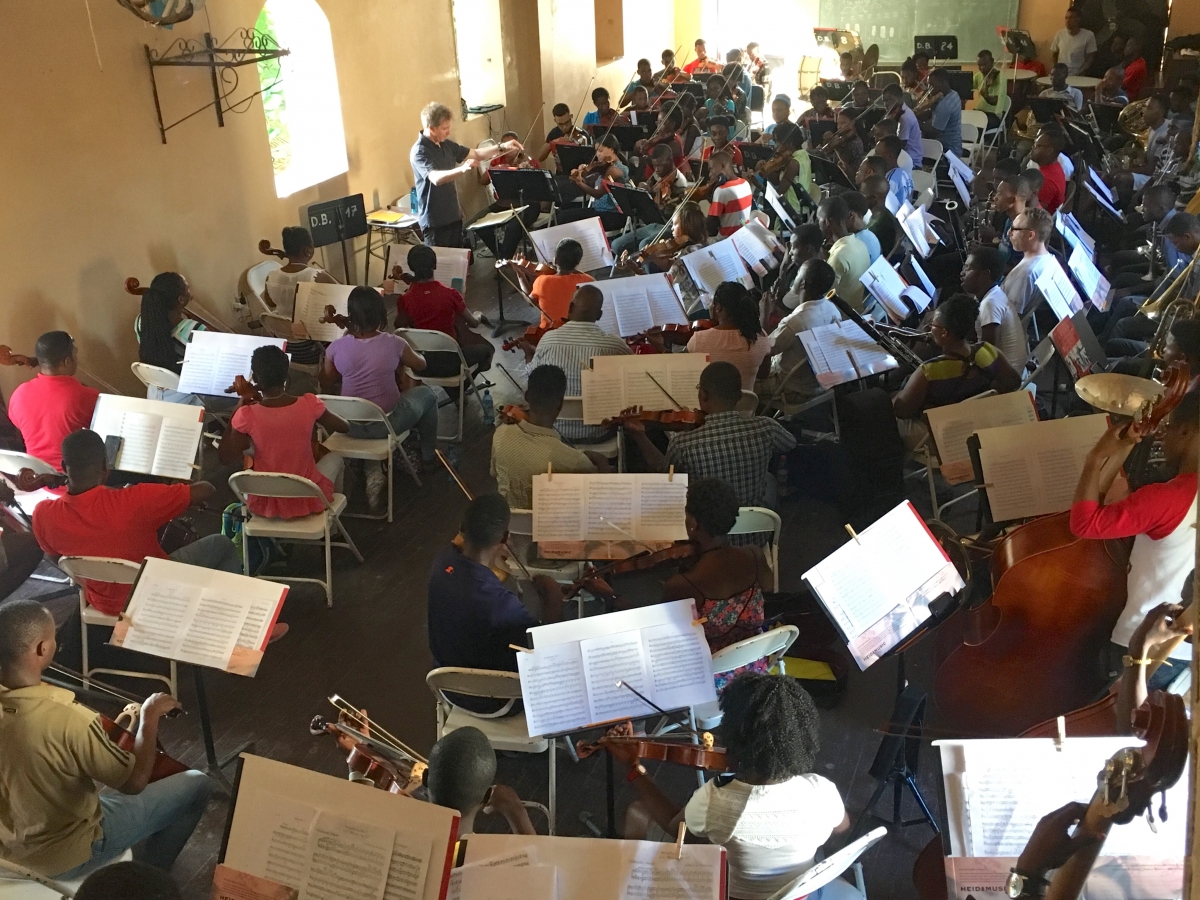By Adam Griffiths
15 members of the Utah Symphony, including University of Utah faculty members, spent their Spring Break educating aspiring musicians in Haiti. This project was the joint effort of the Utah Symphony and Building Leaders Using Music Education (BLUME). John Eckstein, cello professor at the School of Music and Utah Symphony member, coordinated this effort with his long-time friend Janet Anthony, President of BLUME. The result of this collaboration was 104 talented Haitian musicians gathering from 19 schools throughout the country receiving private and group instruction, culminating to a concert where they performed prominent works such as Beethoven’s Fifth Symphony, Schubert’s Unfinished Symphony, and selections from Bizet’s Carmen.
What makes this project so unique? Eckstein explains, “Individuals or small groups do go [to Haiti] to teach, usually in the summer, but never anything like this. For 15 members from a top 15 American orchestra along with their Music Director to go to Haiti is entirely new. We are building on the great work of others, but sort of turbo charging it a couple of times over. It's a testament to the generosity in the Symphony, the University community, and the state.” Furthermore, Eckstein noted, “In Haiti there isn’t a violinist down the street with a Juilliard diploma on the wall. In many cases, these students are also teachers at their own schools.”
Although the program participants don’t receive consistent music education throughout the year, Eckstein noted that there was incredible talent inherent in these musicians. As part of an exercise, the instructors had the students sing their melodic phrases. “Perhaps a national strength, their singing was not only lovely and in tune, but also insightfully phrased. Notes of significance were treated as such, and resolutions were unmistakable.” For further evidence of natural talent, Eckstein noted that “one of the violinists play[ed] tenor sax and then trumpet with remarkable panache at the post-concert party. None of the professional symphony musicians could do that.”
All music educators who participated volunteered their time and had to pay their own airfare. Eckstein said, “Due to the financial realities there, we needed to make the institute entirely free to all of the participants. This included round-trip transportation to Jacmel and room and board for the 75 students from outside the area, as well as lunch and transportation within Jamel for the 30 local participants. We raised almost $30,000 and needed every penny to make it work.”
Steve Proser, horn professor at the School of Music, spoke of some of the challenges of music education in Haiti vs. the United States. “My Haitian students don’t have access to the same quality and quantity of lessons than my U students have had. Also, their instruments are in rather poor condition. There are no expert brass repairmen there. . . Nonetheless, my Haitian students were very talented, intelligent and receptive to ideas. There is an innocence and excitement to them that is sometimes missing here at home.” Proser’s favorite memory from his experience was his teaching studio. He said, “There was no indoor space, so I did my teaching on the beach by the wharf in Jacmel, Haiti. Stunningly beautiful.”
This experience was life-changing for all who participated. Eckstein said, “Being in Haiti tends to make one appreciate the remarkable opportunities and comforts we take for granted in this country. We are really blessed here and it’s good to recognize that. There are a lot of reasons to be happy and thankful here.”



